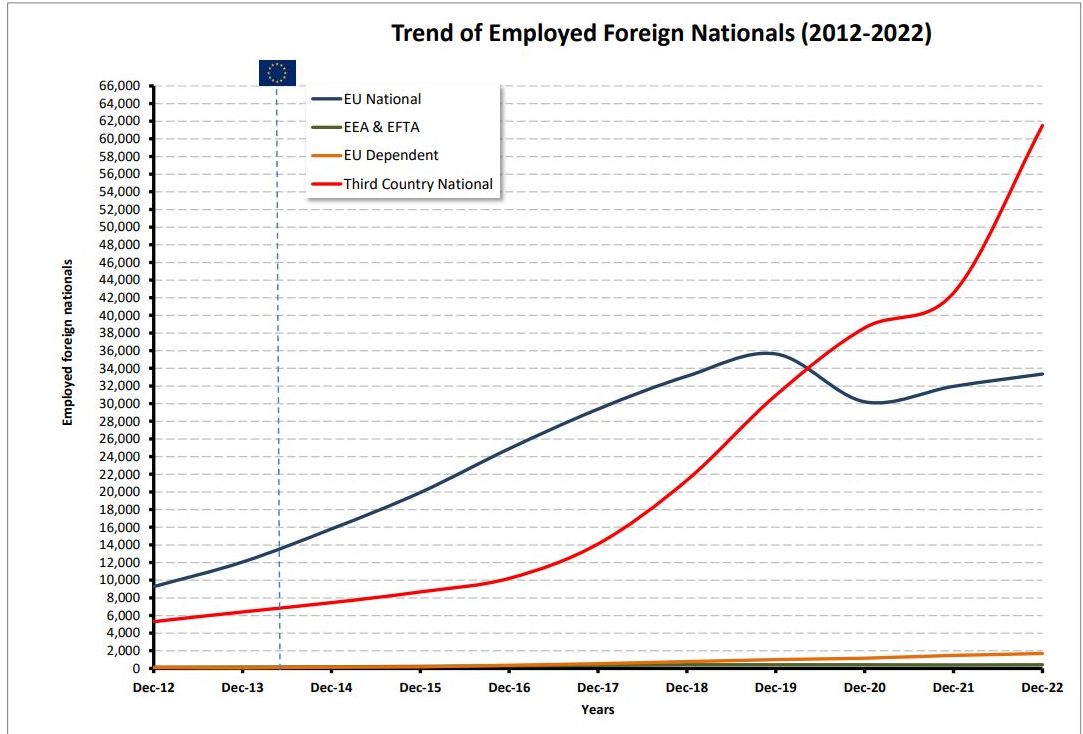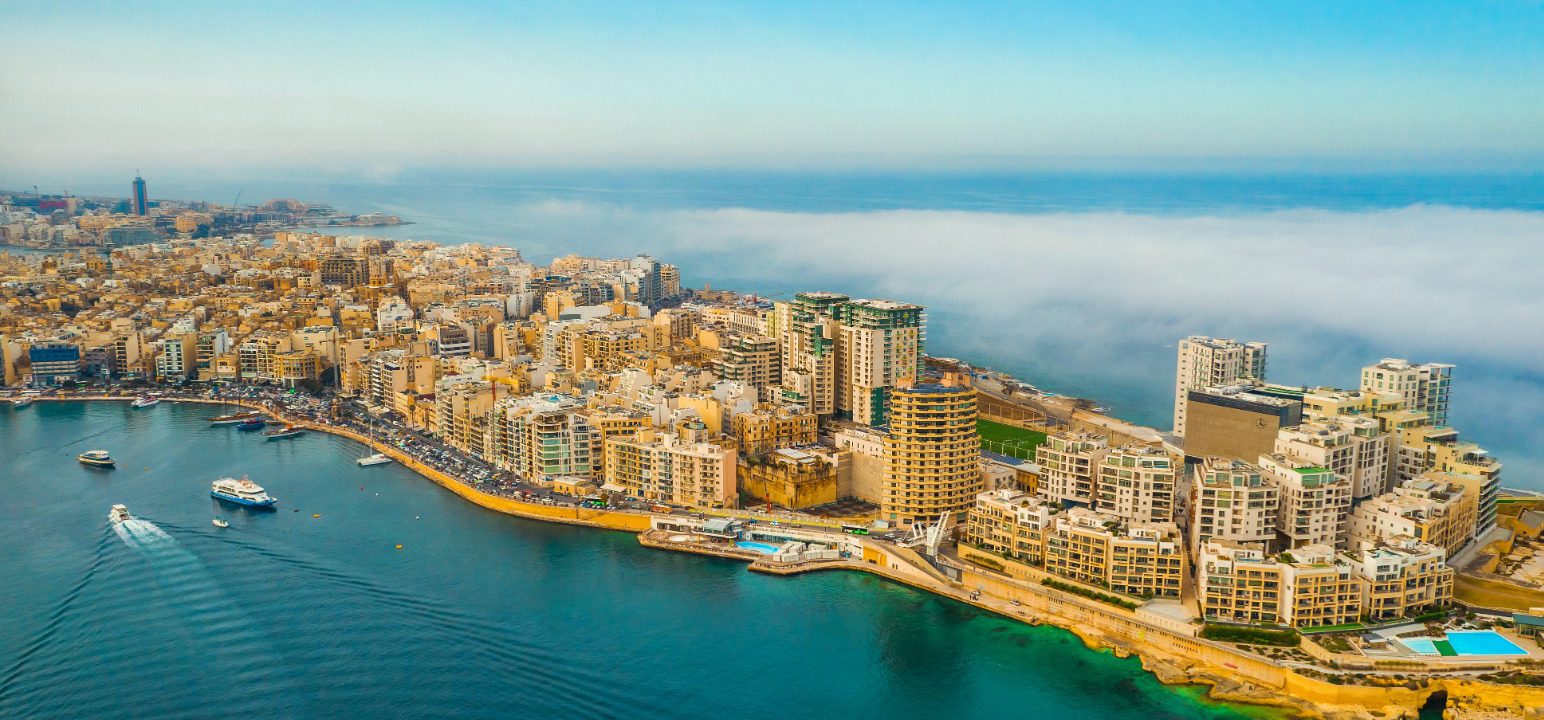As the number of people living in Malta rises so does demand for housing, and with a dependence on foreign workers to fill in the gaps in the ever-present workforce shortage, it is only expected to grow.
The Housing Authority’s executive head of policy, Brian Micallef, shared his thoughts on LinkedIn on the fact that, the number of foreign workers in Malta grew by 20,575 in 2022, the largest increase within a single year since at least 2013.
Data published by JobsPlus shows that employed foreign workers in Malta amounted to 96,970 by the end of 2022, with third-country nationals representing the largest share (63 per cent) followed by EU citizens (36 per cent).
While the share of third-country nationals officially outgrew the share EU citizens in 2020 amid the COVID-19 pandemic, it’s possible that the shift took place earlier due to a larger pre-pandemic presence of unregistered workers.
He pointed out that the number of Indian citizens in Malta is roughly on par with the number of Italian citizens, the country’s largest community of foreign nationals.

“This has important implications on the demand for housing and raises key questions; how can we ensure adequate housing standards? (to safeguard the well-being of these workers and to minimise the disturbance to neighbours residing close by),” asked Dr Micallef.
“Does it make sense to continue building more of the same? Should we consider alternative types of accommodation that are more reflective of the changing demand for housing?”
He shared anecdotal evidence which suggested that third country nationals were more likely to co-share and stay in over-crowded accomodation, primarily due facing discrimination, different work-leisure preference and due to sending remittances back to their home country.
Real estate industry stakeholders had recently shared that the number of expats in Malta is increasing and driving up demand for property, especially in the rental market, making housing available for under €800/ month a rarity.
Furthermore, the Finance Minister recently remarked that, in order to sustain the current economic model, the country’s population will be required to grow to 800,000 by 2040.
With Malta already being one of the most densely populated countries in the world, challenges related to housing will likely continue being a top concern for the country’s policymakers.
Employers take umbrage at video promoting public sector’s flexible work arrangements
The video outlines a range of flexibility options available to public sector employees
Malta’s inflation eases to 2.5% in January as food prices remain main driver
While overall inflation continued to moderate at the start of the year, price pressures remain uneven across categories
Final call for food and beverage manufacturers to exhibit at SIAL Paris
SIAL Paris is one of the world’s leading international food and beverage exhibitions






